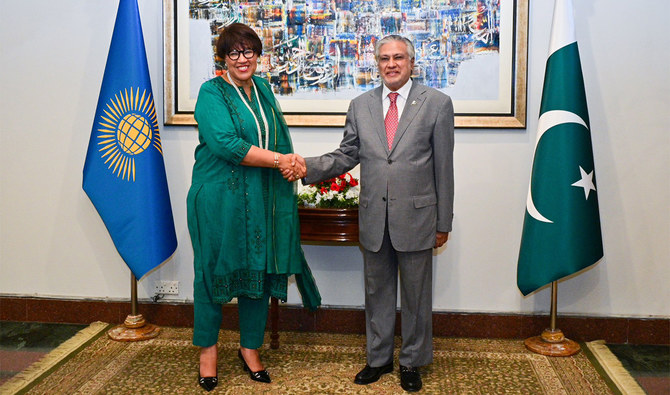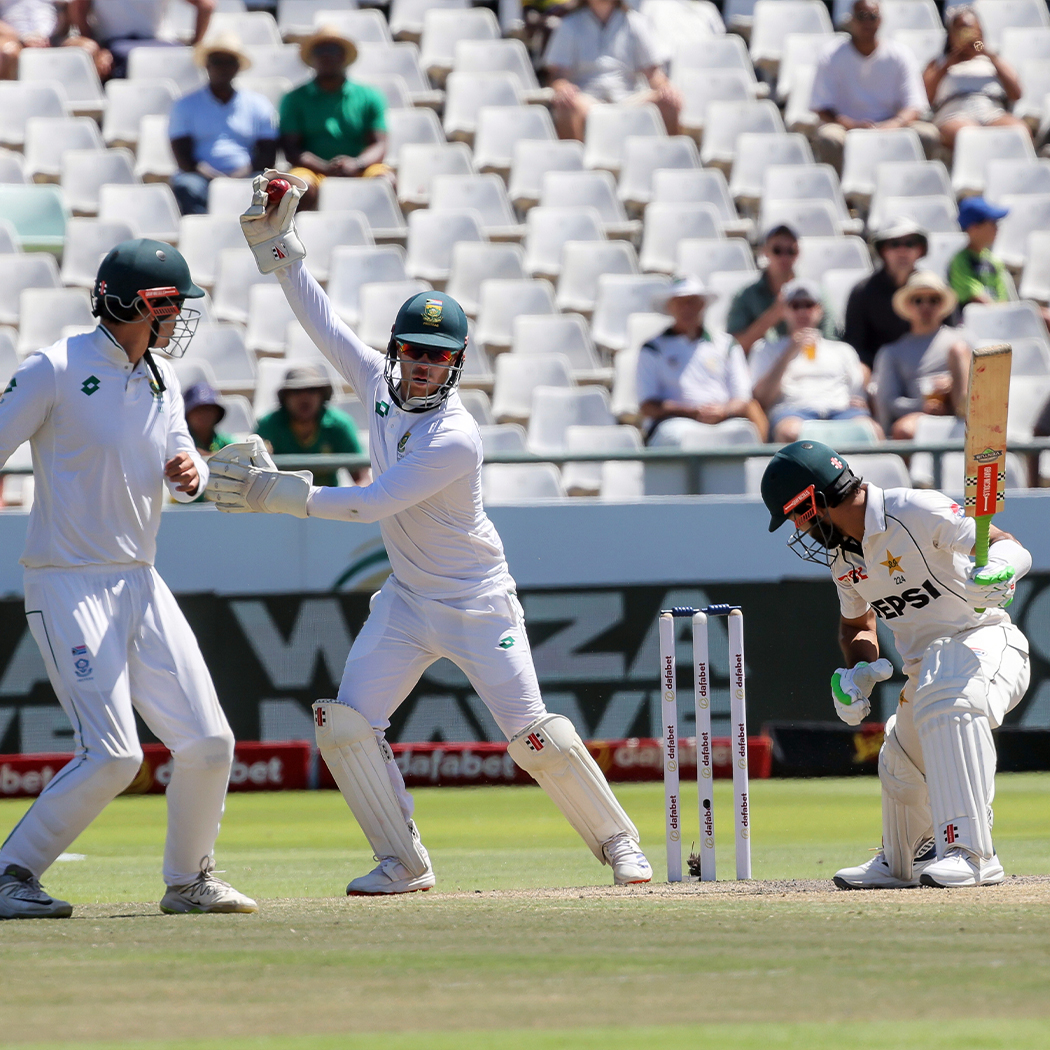ISLAMABAD: Deputy Prime Minister Ishaq Dar on Monday expressed Pakistan’s support for the Commonwealth’s goal to boost trade between member states to $2 trillion by 2030 as the South Asian nation struggles to position itself as a regional trade hub.
Commonwealth secretary general Patricia Scotland kicked off a five-day visit to Pakistan with a meeting with Dar in Islamabad, with discussions focusing on climate change, women and youth empowerment, development and education. The two leaders also spoke about the Commonwealth Connectivity Agenda for Trade and Investment (CCA), established at the 2018 Commonwealth Heads of Government Meeting, where Commonwealth leaders committed to the vision of increasing intra-Commonwealth trade to $2 trillion by 2030, as well as expanding intra-Commonwealth investment.
CAA is a platform for countries to exchange best practices and experiences to trade and investment and undertake domestic reforms through digitalization.
“Pakistan supports the Commonwealth target of increasing trade between member countries to two trillion [dollars] by 2030. It envisions itself as a regional hub for trade,” Dar said on Monday while addressing a joint presser with Scotland.
“Madam’s vision of two trillion intra-Commonwealth trade is praiseworthy and achievable.”
Speaking about regional connectivity and trade efforts, Dar said Pakistan was working with Uzbekistan for railway connectivity between the two countries and in dialogue with Turkmenistan regarding the proposed Turkmenistan to India pipeline called TAPI.
Turkmenistan, a Central Asian republic sitting on the world’s fourth-largest natural gas reserves, wants to build the pipeline as part of its plans to diversify sales from Soviet-era master Russia to energy-hungry markets in Asia and Europe. The idea of the 1,700-km (1,056-mile) TAPI pipeline was first raised in the mid-1990s, but has never been realized.
Pakistan and India, which would consume most of the gas supplied via the pipeline, have previously said they are close to signing a supply deal with Turkmenistan. Previous timeframes have passed without an agreement being struck.
Pakistan hopes to leverage its strategic geopolitical position and enhance its role as a pivotal trade and transit hub connecting the landlocked Central Asian republics with the rest of the world. In recent months, there has been a flurry of visits, investment talks, and economic activity between Pakistan and Central Asian states and meetings with leaders from Uzbekistan, Azerbaijan, Tajikistan, and Turkmenistan.



















